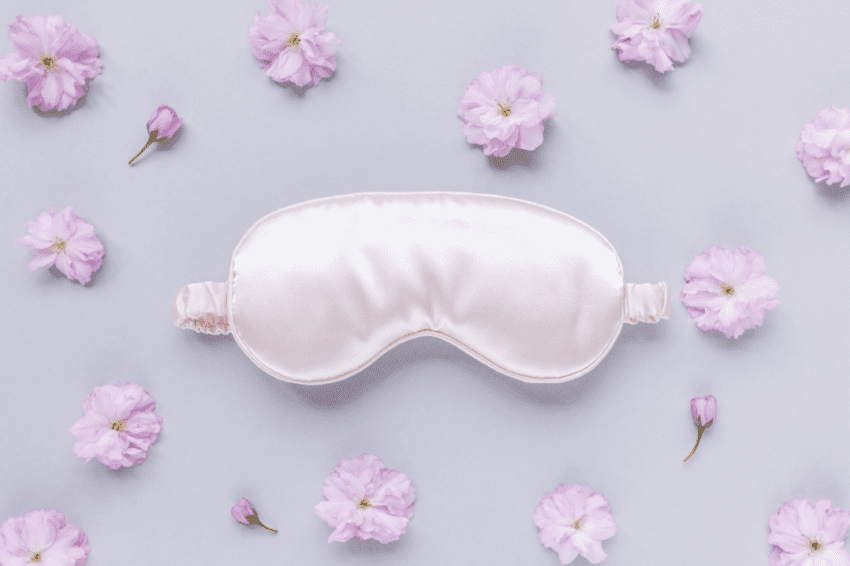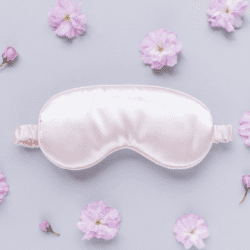“Sleep is the single most effective thing we can do to reset our brain and body health each day” – MATTHEW WALKER
Sleep is indeed a cornerstone of health, and extensive research has been conducted to understand its critical role in overall well-being. It has been observed that people who are healthy, sleep well and people who sleep well, are the healthiest. My relationship with sleep improved during my journey to heal my PCOS as I figured that staying up late in the night is no badge of honor and late nights were not only damaging my chances of getting a good night’s rest but also ruining the next morning and the entire next day subsequently. Most of us live in a society that appreciates late nights and completely disregards the primal circadian biology that each of us are born with. Women need to pay more attention as they progress into their mid-30s and 40s, to preserve their sleep cycle and prioritize deep and restful sleep as this is the age of major hormonal shifts. Most women of these age groups I have worked with complain of sleep disturbances, low energy upon waking up and scattered or foggy brain. Well, diet may not resolve this issue alone and we need to take a holistic approach starting with fixing your sleep.
In this Blog we will discuss the significance of sleep, effects of sleep on our body, stages of sleep and tips to a good night’s sleep-
Here are some key findings from research on sleep and its importance for health:
- Physical Health:
- Cardiovascular health: Numerous studies have linked poor sleep to an increased risk of heart disease, high blood pressure, and stroke.
- Weight management: Sleep deprivation can disrupt the balance of hunger hormones, leading to weight gain and obesity.
- Immune function: Sleep is crucial for a properly functioning immune system. Lack of sleep can make individuals more susceptible to infections.
- Mental Health:
- Mood Disorders: Sleep disturbances are strongly associated with mood disorders such as depression and anxiety.
- Cognitive Function: Sleep plays a vital role in cognitive processes like memory consolidation, problem-solving, and creativity. Chronic sleep deprivation can impair these functions.
- Productivity and Performance:
- Work and Academic Performance: Poor sleep can significantly impact productivity and academic success. Cognitive deficits from sleep deprivation can affect decision-making, concentration, and learning.
- Accidents and Errors: Sleep-deprived individuals are more prone to accidents, errors, and reduced reaction times, which can have serious consequences in various settings, including the workplace and while driving.
- Chronic Diseases:
- Diabetes: Sleep disturbances, particularly sleep apnea, are associated with an increased risk of type 2 diabetes.
- Neurodegenerative Diseases: Research suggests that inadequate sleep may be linked to the development of neurodegenerative diseases like Alzheimer’s and Parkinson’s disease.
- Aging and longevity:
- Quality sleep is thought to play a role in slowing down the aging process, and it can promote longevity.
- Hormonal Regulation:
- Sleep is crucial for the regulation of hormones, including those involved in growth, stress response, and appetite control.
- Recovery and Healing:
- Sleep is a critical time for the body to repair tissues, consolidate memories, and process emotions.
- Quality of life:
- Adequate sleep contributes to an improved quality of life, better emotional well-being, and increased resilience to stress.
- Shift work and sleep disorders:
- Shift work and sleep disorders like insomnia and sleep apnea can have a profound impact on health and require specific interventions and treatments.
- Lifestyle factors:
- Factors such as diet, exercise, and stress management can also influence sleep quality, making it important to consider a holistic approach to health.
Sleep is typically divided into several stages, which can be broadly categorized into two main types:
Non-REM (NREM) sleep and REM (rapid eye movement) sleep.
The sleep cycle typically starts with Stage 1, progresses through Stages 2, 3, and 4 (NREM sleep), and then enters REM sleep. This cycle repeats several times during a typical night’s sleep, with each cycle lasting about 90 minutes. As the night progresses, the proportion of REM sleep in each cycle increases, while the amount of deep NREM sleep (Stage 3 and Stage 4) decreases.
Non-REM (NREM) sleep is the stage where restorative and restful sleep occurs, and it is important for physical recovery and feeling refreshed.
REM sleep is crucial for cognitive functions, memory consolidation, and emotional regulation.
That explains why we feel moody or out of sorts if we have suffered a bad night’s sleep or upon waking up to an alarm clock with unrefreshing sleep!
It is important to note that the duration and characteristics of these sleep stages can vary among individuals and may change with age.
Sleep also plays a crucial role in balancing hormones in the body. Hormones are chemical messengers that regulate various bodily functions, including metabolism, growth, mood, and immune system function. Several key mechanisms explain how sleep helps in maintaining hormonal balance:
- Melatonin: Sleep is intimately connected to our circadian rhythms, which are 24-hour internal clocks that regulate the timing of various physiological processes. Melatonin is a hormone that regulates the sleep-wake cycle. It is produced by the pineal gland in response to darkness and helps signal the body that it is time to sleep. Adequate sleep and a consistent sleep schedule help maintain the proper level necessary for a good night sleep. disrupting this cycle by not getting enough sleep or having irregular sleep patterns can lead to imbalances in this hormone.
- Growth Hormone Release: One of the most critical hormones affected by sleep is growth hormone (GH). GH is primarily released during deep, slow-wave sleep (also known as non-REM sleep). It plays a vital role in tissue repair, muscle growth, and overall development. Insufficient sleep can impair the secretion of GH, potentially affecting growth and repair processes.
- Insulin and Glucose Regulation: Sleep deprivation can lead to insulin resistance, which can contribute to type 2 diabetes. Lack of sleep disrupts the body’s ability to regulate blood sugar levels properly, leading to elevated blood glucose levels. Chronic sleep deprivation can lead to long-term imbalances in insulin and glucose metabolism.
- Leptin and Ghrelin Regulation: Sleep affects the hormones leptin and ghrelin, which are involved in appetite regulation. Leptin suppresses appetite, while ghrelin stimulates hunger. Sleep deprivation can lead to decreased leptin levels and increased ghrelin levels, leading to overeating and weight gain.
- Stress Hormones: Chronic sleep deprivation can elevate stress hormone levels, particularly cortisol. Cortisol is a stress hormone that follows a diurnal rhythm, peaking in the morning and decreasing at night. Elevated cortisol levels can disrupt the body’s hormonal balance and contribute to various health problems, including anxiety, depression, and metabolic issues.
- Reproductive Hormones: Sleep also plays a role in regulating reproductive hormones, such as estrogen and testosterone. Irregular sleep patterns or chronic sleep deprivation can disrupt the menstrual cycle in women and reduce testosterone levels in men.
- Immune System Support: Adequate sleep is essential for a well-functioning immune system. Sleep helps regulate the release of cytokines, proteins that play a role in immune responses. Chronic sleep deprivation can weaken the immune system and lead to increased susceptibility to infections.
In summary, sleep is essential for maintaining hormonal balance because it influences the timing and secretion of various hormones that control vital bodily functions.
Therefore, maintaining good sleep hygiene is essential for getting restful and rejuvenating sleep. Poor sleep habits can lead to sleep disorders and negatively impact your overall health and well-being. Here are some tips to help you establish and maintain good sleep hygiene:
- Stick to a Regular Sleep Schedule:
- Go to bed and wake up at the same time every day, even on weekends. This helps regulate your body’s internal clock.
- Create a Comfortable Sleep Environment:
- Make sure your bedroom is conducive to sleep. This includes a comfortable mattress and pillows, as well as a dark, quiet, and cool room.
- Consider using blackout curtains, earplugs, or a white noise machine if necessary.
- Limit Exposure to Screens:
- Avoid screens (phones, tablets, computers, TVs) at least an hour before bedtime. The blue light emitted by screens can interfere with your body’s production of melatonin, a hormone that regulates sleep.
- Be Mindful of Your Diet:
- Avoid heavy meals, caffeine, and alcohol close to bedtime, as these can disrupt sleep.
- A light snack before bed is acceptable only if you are hungry, but avoid large meals.
- Stay Active:
- Engage in regular physical activity, but try to finish exercising a few hours before bedtime.
- A relaxing activity like gentle stretching or yoga can be beneficial before sleep.
- Manage Stress:
- Practice stress-reduction techniques, such as deep breathing, meditation, or progressive muscle relaxation, to calm your mind before sleep.
- Establish a Bedtime Routine:
- Develop a calming bedtime routine to signal to your body that it is time to wind down. This could include reading a book, taking a warm bath, or practicing relaxation exercises.
- Limit Naps:
- If you need to nap during the day, keep it short (20-30 minutes) and avoid napping too close to bedtime.
- Watch Your Liquid Intake:
- Minimize your consumption of fluids close to bedtime to reduce the likelihood of waking up to use the restroom.
- Be Mindful of Sunlight Exposure:
- Get exposure to natural sunlight during the day, as this helps regulate your sleep-wake cycle.
- Avoid Clock-Watching:
- If you have trouble falling asleep, avoid constantly checking the clock, as this can increase anxiety about not sleeping.
- Consider Cognitive Behavioral Therapy for Insomnia (CBT-I):
- If you consistently have trouble sleeping, consider seeking help from a sleep specialist who can guide you through CBT-I, a highly effective non-medication treatment for insomnia.
Getting enough high-quality sleep is crucial for overall health and well-being. Most adults should aim for 7-9 hours of sleep per night to support hormonal balance and overall health. Remember that it may take some time to establish good sleep habits, so be patient with yourself. If you continue to have sleep difficulties despite following these guidelines, consult a healthcare professional to rule out any underlying sleep disorders or medical conditions that may be affecting your sleep.
If you feel you cannot make these Lifestyle changes alone, I am here to assist you on your journey to sleep better and feel better. Contact me and let us work together on your Lifestyle goals.
I also recommend you read these amazing books –
. WHY WE SLEEP by Matthew Walker, PhD
. THE CIRCADIAN CODE by Dr Satchin Panda
Sleep well!!






